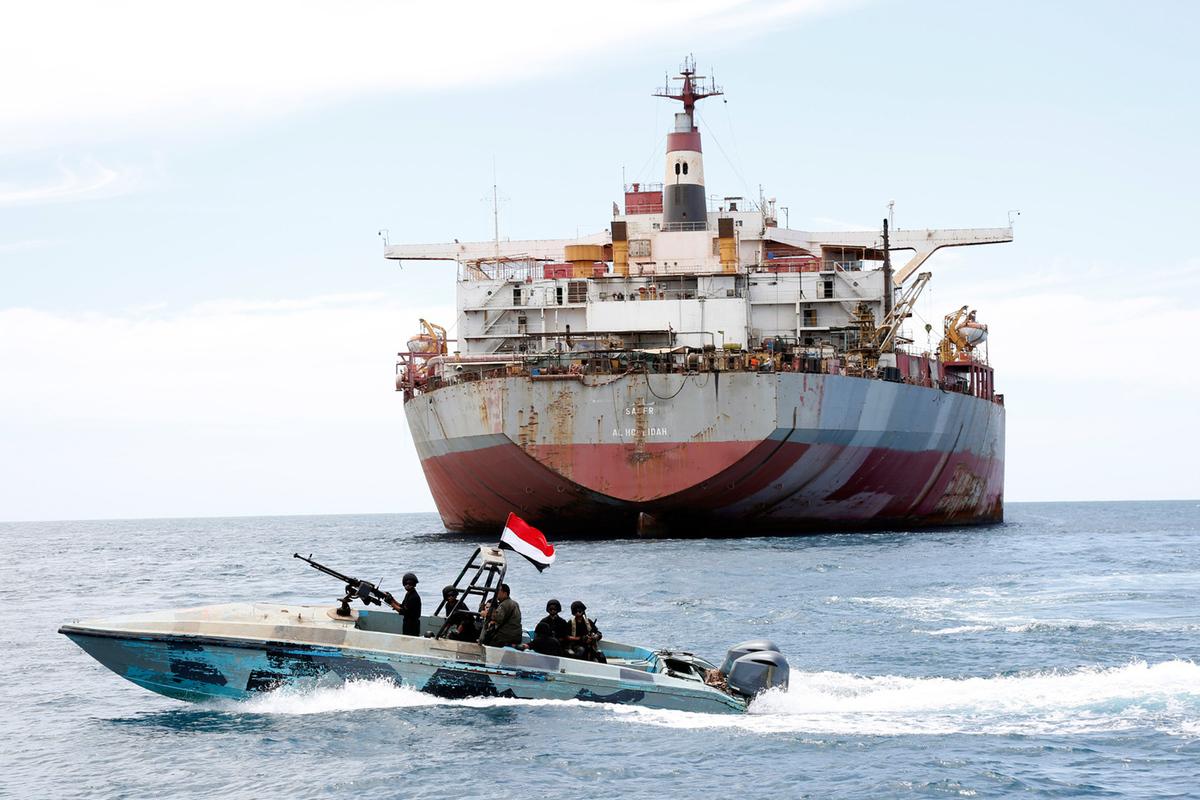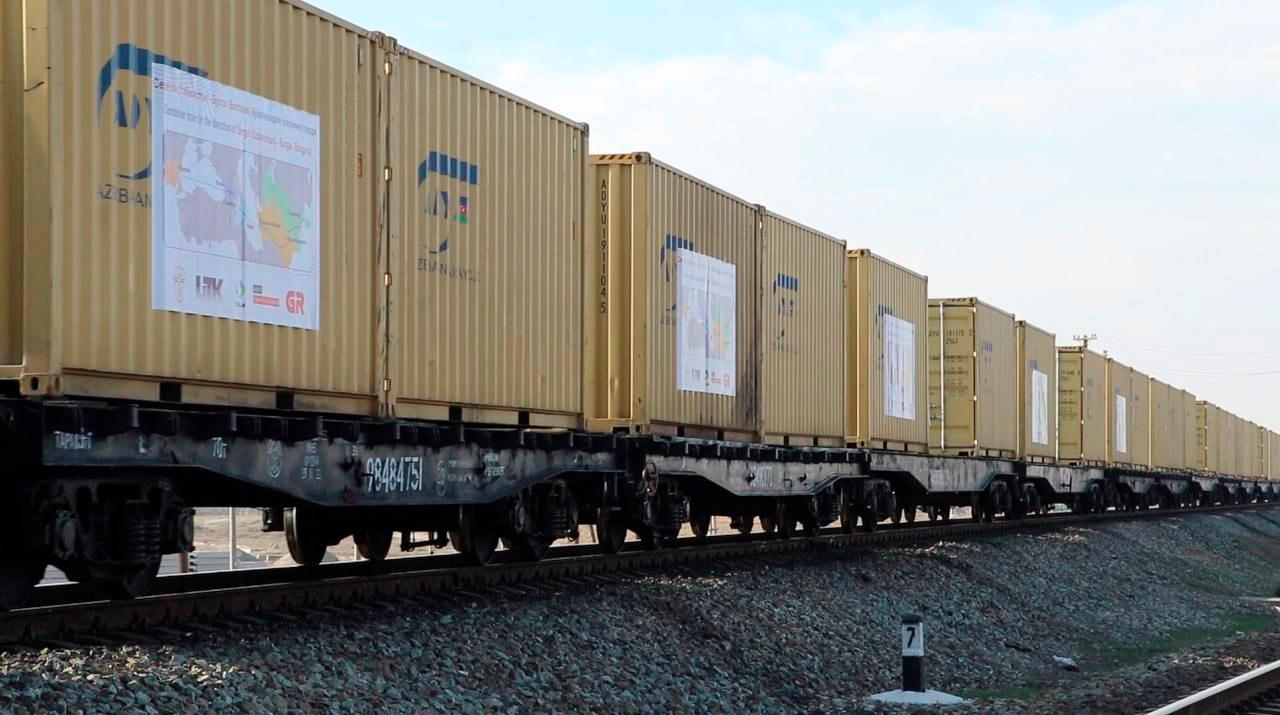Unfolding Middle East crisis spurs Middle Corridor's role as alternative to Suez Canal Multimodal, sustainable, safe
Since the end of last year, the centre of gravity of the conflict between the West and its Middle Eastern adversaries has moved to the Red Sea, and this conflict appears to have a protracted nature. This conclusion follows assessments by the IMF and other experts of the February 22 attacks by the Houthis' Ansar Allah movement on the commercial vessel Islander in the Gulf of Aden and a US destroyer in the Red Sea.
Overall, cargo traffic through the Suez Canal has dropped by 55 per cent since Houthi attacks on Red Sea vessels began. The conflict has prompted shippers to opt for a longer detour through the Cape of Good Hope, while the EU and other countries are increasingly inclined to consider diverting some cargo to the shorter and safer Middle Corridor.
The escalation of the Palestinian-Israeli conflict in Gaza last October was the catalyst for the unblocking of several other Middle East hotspots. In particular, since mid-November last year, the Ansar Allah rebel movement in Yemen has been using attack drones and anti-ship missiles (ASMs) to target cargo ships passing through the waters of the Red Sea and the Bab el-Mandeb Strait.
The Houthis have declared their readiness to fire on ships until the Gaza operation is halted. Over the past three months, the Houthis have attacked dozens of civilian vessels in the Red Sea and the Gulf of Aden, and these attacks have not stopped despite a harsh response from the international coalition led by the United States and Britain.

As part of Operation Prosperity Guardian, which aims to ensure freedom of navigation and protect shipping in the Red Sea, Western coalition forces have struck Houthi warehouses, radar stations and other facilities. The Houthis, however, have no intention of ceasing their attacks in this region, which is strategically important for shipping in the world. Last Thursday, Ansar Allah again attacked the commercial vessel Islander in the Gulf of Aden and a US destroyer in the Red Sea, using drones and missiles.
Commenting on these developments, International Monetary Fund (IMF) spokeswoman Julie Kozak said that cargo traffic through the Suez Canal has dropped by 55 per cent year-on-year since Yemen's Houthi rebels began attacking cargo ships. "We are monitoring the volume of traffic through the Suez Canal: by mid-February it was down 55 per cent year-on-year. At the same time, traffic through the Cape of Good Hope (around the African continent) increased by almost 75 per cent," Kozak said, stressing that the current situation could lead to serious negative economic consequences, not to mention a humanitarian catastrophe in the vast region.
The International Maritime Organisation (IMO) estimates that transit losses for the Suez Canal are much higher.
"The Suez Canal has lost about two-thirds of its cargo because of the tensions in the Red Sea, and these cargoes are now being routed through southern Africa. And some carriers have decided to stop transiting the Red Sea altogether," IMO chief Arsenio Dominguez said recently.
Bloomberg experts say Ansar Allah militants are preparing for a prolonged confrontation with the US and its allies in the Red Sea region, regardless of how the Israel-Hamas war unfolds. They are building air-raid-proof mountain hideouts and warehouses for safer and more effective rocket launches, and testing unmanned boats and torpedoes for sea-based attacks.
It is clear that if the conflict continues for many months, the scale of commercial losses will increase exponentially: the complexity of the situation is indirectly demonstrated by the massive refusal of shipping companies to carry cargo in the region. According to the Financial Times (FT), there is now a sharp conflict between shipowners and charterers. Many Western shipowners are changing their usual routes through the Suez Canal and the Red Sea to the longer but safer route via the Cape of Good Hope.
Such a decision increases the delivery distance and therefore the final cost of cargoes, which goes against the interests of forwarders and shippers - the latter, especially suppliers of commodities such as iron ore, grain and other bulk cargoes, threatening shipowners with lawsuits. The situation is even worse for hydrocarbon transhipment through the Suez Canal. Among Western oil companies, BP refused to transport fuel in the Red Sea last December, while Danish shipping and logistics company Moller-Maersk Group, Germany's Hapag-Lloyd and France's CMA CGM have recently announced similar decisions.
Against this negative backdrop, China and Southeast Asian countries are increasingly focusing on the Middle Corridor through Central Asia and the South Caucasus, which they see as providing optimal time and safety access to Turkish, Middle Eastern and European markets. The work in this direction is already in its fifth year of active implementation within the framework of the combined sea and rail component of the Middle Corridor - the Trans-Caspian International Transport Route (TITR), which was established at the end of 2018. The TITR also includes the transhipment of cargo via the Baku-Tbilisi-Kars (BTC) railway line.
In particular, transshipping non-oil cargo, including containerised cargo, by train and truck along the Middle Corridor routes takes on average about 20-25 days, which is significantly less than transshipping cargo from China and Southeast Asia by sea around the Cape of Good Hope in southern Africa, which takes on average at least one and a half months.
"The geopolitical changes of the last two years have dramatically increased the importance of the Middle Corridor and are going to change transport and logistics in the future. The delivery of cargoes on the traditional routes between the East and the West and in the opposite direction takes 53 days (with transhipment through the Suez Canal), and we have managed, within the framework of cooperation with the countries of the region, to reduce the transit time of cargoes along the Middle Corridor to 22 days last year," said Rashad Nabiyev, Azerbaijan's Minister of Digital Development and Transport, at the end of last year.
The minister recalled that the corridor's roadmap was developed jointly with the countries participating in the project. This document defines the responsibilities of all parties and successfully works on the synchronisation and unification of borders, customs, tariffs and other rules and regulations.

For example, in the first decade of February, Azerbaijan and Kazakhstan agreed to update the roadmap for the synchronous elimination of bottlenecks and development of the Central Corridor. This includes joint efforts to digitise TMTM logistics, dredging the Kazakh port of Kuryk, developing railway infrastructure and increasing the number of locomotives for loading and unloading wagons, as well as expanding the capacity of the port of Aktau.
Azerbaijan, for its part, is continuing to modernise the port of Alat, increasing its capacity from the current 15 million tonnes to 25 million tonnes per year: a terminal for the handling and storage of mineral fertilisers opened in October 2023, a new grain terminal will come on stream at the port of Alat this year, and in the medium term an expanded container terminal will open here, with a capacity of 500,000 TEU containers per year.
Azerbaijan is also financing work to expand BTC bottlenecks, notably the modernisation of the 183km Marabda-Kartsakhi section in Georgia, which will increase BTC throughput capacity from the current 1 million to 5 million tonnes of cargo per year.
Given the ongoing Russian-Ukrainian war, which has disrupted all logistical routes between Russia and the West, as well as the current escalation of conflicts in the Middle East, which has led to a virtual standstill of normal navigation in the Red Sea and the Suez Canal, the role of the Middle Corridor as a safe route has tangibly increased. This has been underlined by the recent decision of European and international financial institutions to provide €10 billion for the development of the Central Asian area.
As Valdis Dombrovskis, Executive Vice-President of the European Commission (EC), recently noted, according to the investment strategy of the EU's Global Gateway Programme, the multi-billion dollar investment is to be used primarily to develop the TITR route as a "multimodal, modern, competitive, sustainable, predictable, 'smart' and high-speed route linking Europe with Central Asia, allowing transhipment in 15 days or less".








